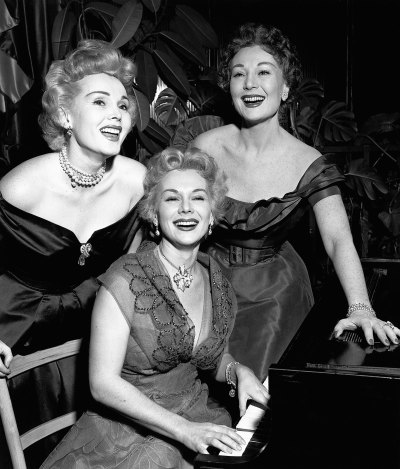Even in the most exclusive nightclubs, where celebrities were a dime a dozen, the arrival of the Gabor sisters—Zsa Zsa Gabor, Eva Gabor, and Magda Gabor—was nothing short of a spectacle. Picture this: three stunning women, dripping in diamonds, furs, and satin, strutting into a room like they owned it. These ladies didn’t just walk in—they made an entrance that turned heads and left jaws dropping. As biographer Sam Staggs once put it, "They worked at being famous, day and night, without stopping." Their charm and charisma weren’t just by chance; they were crafted with precision and dedication.
But beneath the glitz and glamour, the Gabor sisters’ lives weren’t all sunshine and roses. These sisters, who between them racked up 19 marriages, knew heartache as well as joy. Staggs, the author of Finding Zsa Zsa: The Gabors Behind the Legend, shared, "They were funny, ambitious, and wealthy, but they also suffered deeply." Magda survived the horrors of the Holocaust, Eva lost the love of her life, and Zsa Zsa battled bipolar disorder, which shaped her often-diva-like behavior. Their lives were anything but easy, but they faced each challenge with grace and resilience.

Growing up in Budapest, the Gabor sisters had a mother, Jolie Gabor, who was determined to see her daughters succeed in life. Jolie herself had dreams of becoming an actress, but her lack of talent and looks meant those dreams stayed unfulfilled. So, she channeled all her ambition into her daughters. Staggs revealed, "Jolie wanted to be an actress, but she just didn’t have what it took." Zsa Zsa, like her sisters, was trained in poise and grace from a young age. At just 15, she entered the Miss Hungary beauty pageant. Though she didn’t win, Zsa Zsa would later claim victory throughout her life, proving that sometimes perception is just as powerful as reality.
Read also:Exploring The Rise Of Olivia Pacino A Rising Star In Hollywood
The Gabor Sisters in Wartime
When Hitler invaded Hungary in 1944, Zsa Zsa and Eva were already living outside the country. The Gabor family had converted from Judaism to Catholicism in 1928, but that didn’t stop them from being targeted. Magda, the eldest sister, and their parents were arrested. Magda, who had been involved in the anti-Nazi underground, had a secret weapon: she was romantically involved with the Portuguese ambassador. "He used his influence to secure their release," Staggs explained. This dramatic escape was just one of many harrowing moments in the Gabor family’s history.



